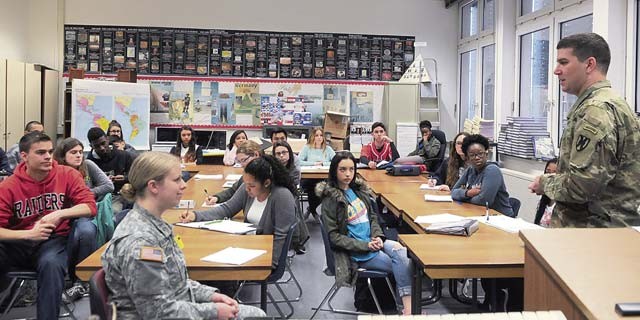
Have you ever thought about becoming part of the oldest law firm in the United States? If you are currently serving as a captain or lieutenant in the fields of operations, operations support, force sustainment or health services, your opportunity to pursue this field is now available through the 2016 Funded Legal Education Program.
If accepted, the FLEP allows officers with two to six years of service the opportunity to attend an approved civilian law school full time, at the government’s expense, for the purpose of obtaining a law degree. This means you will remain on active duty, entitled to your full pay and allowances, during the time you earn your Juris Doctor degree. Once accepted into the program, you can apply to any law school you choose. The program usually lasts for three years, after which you return to the active Army to serve with the staff judge advocate as an attorney. The Army has a cap amount that they will pay for tuition. However, some of the more expensive universities will work with you and the program in order to get you into the school you prefer. There are some FLEP participants now attending Harvard Law School and Yale University.
“There are different fields within the legal profession that you can specialize in,” said Capt. Matt Montazzoli, 21st Theater Sustainment Command administrative law attorney and a 2014 graduate of the University of Colorado Law School as a FLEP officer. “The areas of expertise include fiscal law and contracts, ethics, criminal law, environmental law and acting as an advisor to the commander for combat operations and training.
“The Army is really its own profession,” Montazzoli continued. “The FLEP gives officers who have already served in the profession of arms an opportunity to learn the profession of law and continue to serve as a judge advocate.”
There are currently four FLEP graduates working at the 21st TSC. Of the 150 or so lawyers that are brought into the Army’s legal field each year, less than 25 percent are FLEP graduates.
“We’re looking for great officers to become great lawyers,” said Col. Paula Schasberger, 21st TSC staff judge advocate and an alumna of the FLEP. “Many people struggle in law school, but since you have already served in the Army, law school will not be the hardest thing you’ve ever done.”
Packets are due on or before Nov. 30. Officers must conduct an interview with their staff judge advocate and should arrange to take the Law School Admissions Test. The FLEP selection board is scheduled for Dec. 5.
For information about applying to this program, check out MILPER message 16-053 at www.hrc.army.mil/milper/16-053.


